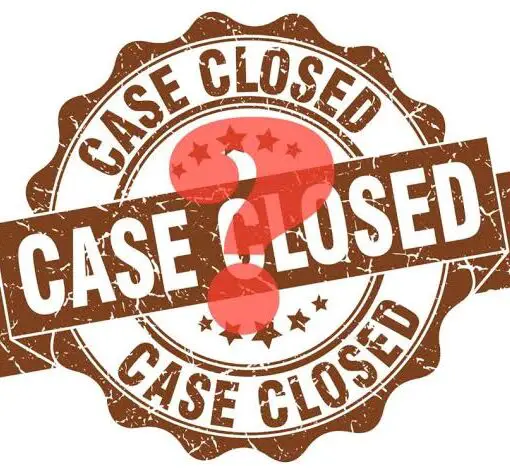While both incident reports and police reports involve documenting events, they serve different purposes, have distinct content, and differ significantly in terms of their legal significance and accessibility. In this overview, we would discuss their differences.
1. Definition and Purpose:
An incident report and a police report are both essential documents used in law enforcement and related fields, but they serve distinct purposes.
Incident Report:
An incident report is a formal record that documents an unexpected event or situation. It is typically used by various organizations, including businesses, schools, healthcare facilities, and public agencies, to record incidents that may or may not involve a crime. The primary purpose of an incident report is to provide a detailed account of what occurred, including who was involved, when and where it happened, and any relevant details. Incident reports are often used for internal purposes, such as improving safety procedures, managing risks, or facilitating insurance claims.
Police Report:
A police report, on the other hand, is a specialized document created by law enforcement agencies to document criminal incidents, accidents, or other events that require police intervention. Its primary purpose is to serve as an official record of a crime or incident, outlining the circumstances, evidence, and actions taken by the police. Police reports are essential for the criminal justice system, as they serve as evidence in court proceedings and aid in investigations.
2. Reporting Authority and Jurisdiction
Another critical distinction between incident and police reports is the authority and jurisdiction under which they are filed.
Incident Report:
Incident reports can be generated by various entities and are not limited to law enforcement agencies. They can be filled out by employees, witnesses, or individuals involved in the incident. These reports are typically used for internal purposes, and there is no strict jurisdiction governing them.
Police Report:
Police reports are exclusively within the jurisdiction of law enforcement agencies, and they are generated by police officers or detectives. These reports are mandated for criminal incidents and have legal significance, as they can be used in court proceedings.
3. Content and Detail
The level of detail and the type of information included in incident and police reports differ significantly.
Incident Report:
Incident reports are generally comprehensive and aim to capture a wide range of information. They may include details about the incident’s location, date, time, descriptions of individuals involved, witnesses, and a narrative of what transpired. Depending on the context, an incident report might also include photographs, diagrams, or statements from witnesses or victims.
Police Report:
Police reports, while also comprehensive, focus specifically on elements related to a potential crime. They include detailed descriptions of the crime scene, statements from victims, suspects, and witnesses, evidence collected, and actions taken by law enforcement officers. The level of detail in a police report is critical, as it can impact the outcome of an investigation or court case.
4. Confidentiality and Accessibility
The handling of incident reports and police reports regarding confidentiality and accessibility differs significantly.
Incident Report:
Incident reports are often considered private documents. They may be shared within the organization that generated them for purposes such as improving safety protocols, but they are not typically accessible to the public. Access to incident reports may be restricted to those directly involved or with a legitimate need to know.
Police Report:
Police reports are generally considered public records, and they are accessible to a wider audience. In many jurisdictions, police reports can be requested by the public, including media outlets, attorneys, or concerned citizens. However, certain sensitive information, such as details of ongoing investigations or personal information, may be redacted to protect individuals’ privacy.
5. Legal Significance
One of the most crucial differences between incident and police reports lies in their legal significance.
Incident Report:
Incident reports, while valuable for organizational purposes, do not hold significant legal weight. They are typically not admissible as evidence in a court of law and do not have a direct impact on legal proceedings, except in specific cases like insurance claims.
Police Report:
Police reports are legally significant documents. They are often used as evidence in criminal and civil cases. The accuracy and completeness of a police report can influence the outcome of legal proceedings, making it crucial for law enforcement officers to maintain the highest standards when creating them.
6. Investigative Role
The role of an incident report and a police report in investigations also varies.
Incident Report:
Incident reports may be used as a starting point for investigations, especially in cases where a potential crime is suspected. They can provide valuable information for law enforcement agencies to decide whether further investigation is warranted.
Police Report:
Police reports are central to criminal investigations. They serve as a detailed record of the incident, providing a foundation for detectives and prosecutors to build their cases. The information contained in a police report guides the entire investigative process, from identifying suspects to presenting evidence in court.
In conclusion, while both incident reports and police reports involve documenting events, they serve different purposes, have distinct content, and differ significantly in terms of their legal significance and accessibility. Understanding these differences is essential for individuals and organizations that deal with incidents or crimes and highlights the importance of accurate and thorough reporting, particularly in the case of police reports, where legal implications are involved.
RELATED:
Why Would A Constable Come To My House?
What Does Open Charges Mean? (Full Meaning and Implications)
Can Drawings Be Illegal? (Know The Law)
Frequently Asked Questions
1. Can an incident report turn into a police report if new information surfaces?
Yes, an incident report can potentially evolve into a police report if new information emerges that suggests criminal activity. Initially, an incident may not seem criminal in nature, but as the investigation progresses, evidence may come to light that indicates a crime has occurred. In such cases, law enforcement may upgrade the incident report to a police report to reflect the criminal aspect and initiate a formal investigation.
For example, a minor altercation in a public place may first be documented as an incident report. If later evidence reveals that the altercation was a result of assault or another criminal offense, law enforcement may reclassify the report as a police report and proceed with a criminal investigation.
2. Can individuals request a copy of their own incident or police report?
Yes, individuals involved in an incident or named in a police report generally have the right to request a copy of the report. This request is typically made through the law enforcement agency that created the report. However, there may be some limitations or restrictions, such as the need to protect sensitive information or ongoing investigations.
In the case of an incident report, which is often used for internal purposes within organizations, individuals may need to contact their employer or the relevant department to obtain a copy.
For police reports, the process may vary depending on the jurisdiction. Some agencies provide online request forms, while others require in-person or written requests. It’s essential to check with the specific law enforcement agency involved for their procedures and any associated fees.
3. What role do incident and police reports play in insurance claims?
Both incident and police reports can play a crucial role in insurance claims, but their significance differs:
Incident Reports: In the context of insurance claims, incident reports are often used by businesses or individuals to document accidents, injuries, or property damage. They serve as a formal record of what occurred and can help facilitate insurance claims. Insurance companies may request incident reports to assess the validity of a claim and determine liability.
Police Reports: Police reports are particularly important in cases involving criminal activities, accidents, or incidents that require law enforcement intervention. Insurance companies often rely on police reports as authoritative documents that provide a detailed account of the circumstances surrounding a claim. These reports can help establish fault, identify witnesses, and verify the occurrence of a crime or accident.
4. Are incident reports and police reports subject to legal challenges or disputes?
Yes, both incident reports and police reports can be subject to legal challenges or disputes. This typically occurs in the context of criminal trials, civil litigation, or insurance claim disputes.
Legal Challenges: In criminal trials, defense attorneys may challenge the accuracy or credibility of a police report as part of their defense strategy. They may argue that the report contains errors, inconsistencies, or biased information. Likewise, in civil cases, attorneys may question the validity of incident reports or police reports as evidence.
Disputes in Insurance Claims: Insurance claims can lead to disputes if the information in incident or police reports is contested. For example, one party may dispute the findings or conclusions in a police report related to a car accident. In such cases, the parties involved may need to provide additional evidence or seek mediation or arbitration to resolve the dispute.
5. Do police reports always result in criminal charges?
No, the creation of a police report does not always lead to criminal charges. Police reports serve as official records of incidents, and whether criminal charges are filed depends on various factors, including the evidence, the discretion of law enforcement, and the judgment of prosecutors.
In some cases, a police report may be filed for documentation purposes, even if there is insufficient evidence to support criminal charges. In other instances, investigations may lead to the conclusion that no crime occurred, and no charges are filed.
It’s important to note that the decision to pursue criminal charges is based on the specific circumstances of each case and the applicable laws in a given jurisdiction. Police reports play a crucial role in this decision-making process by providing a factual account of events.
Last updated on: April 27, 2024




